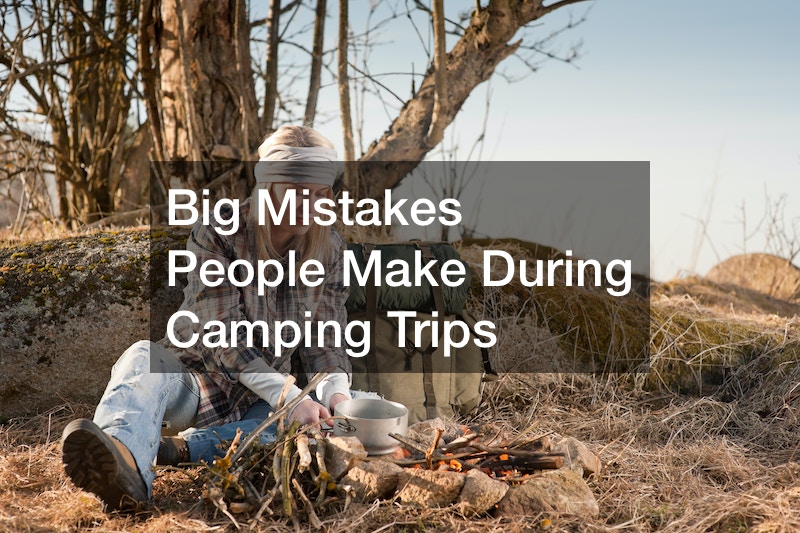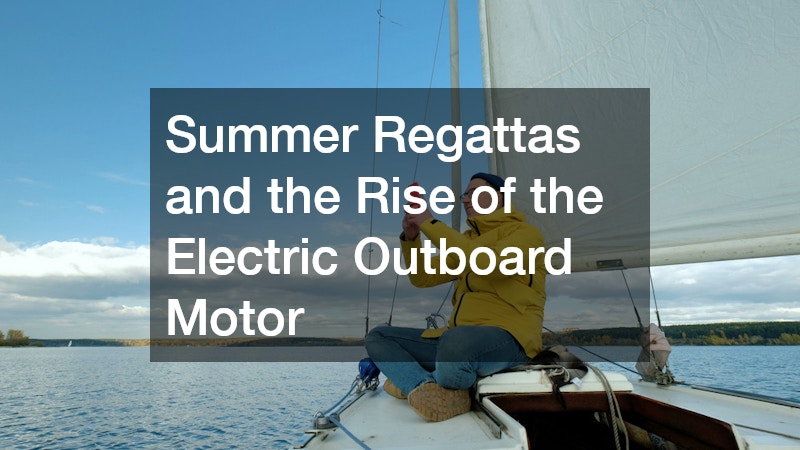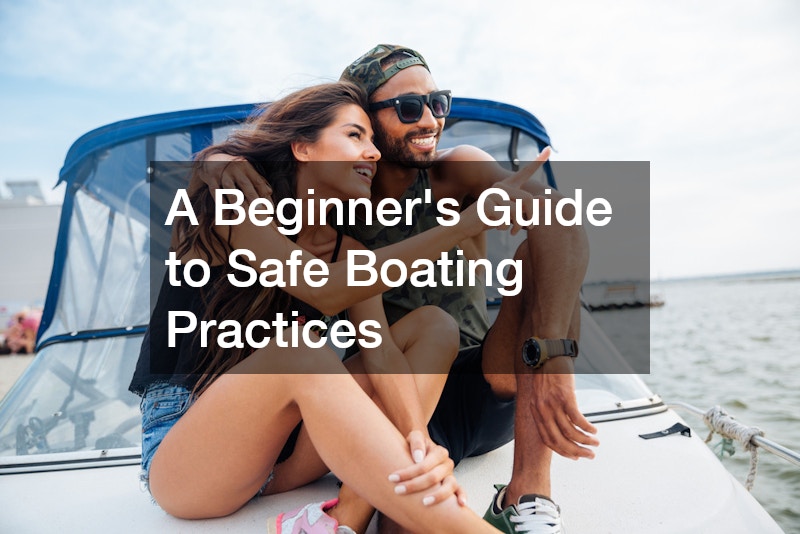
Embarking on a camping trip can be a thrilling adventure, offering an escape from the monotony of everyday life. It can be an opportunity to reconnect with nature, filled with breathtaking sights, soul-soothing nature sounds, and unforgettable adventures. However, it is not always as idyllic as it seems.
Amidst all the excitement, even seasoned campers can make big mistakes that turn an otherwise wonderful experience into a challenging ordeal. In this article, we will look into some of the most common mistakes people make during camping trips. Read on to uncover these common pitfalls and learn how to avoid them for a seamless and enjoyable camping experience.
Breaking Local Laws

You have probably heard stories of campers who miss their track and end up in jail (well, not literally). Breaking local laws is among the most common and big mistakes people make during camping trips. Every jurisdiction has specific rules and regulations that campers must follow to preserve the environment and ensure their safety. Breaking these rules can lead to hefty fines or even jail time on serious occasions, ruining the whole camping experience.
One of the most common offenses is starting fires in restricted areas. Sometimes, parks have restricted areas where ground fires are prohibited. Such prohibitions can sometimes be permanent, whereas other times, it is seasonal. Going against these restrictions risks wildfires harming the environment and putting campers’ lives at risk.
Other ways you risk breaking local laws are hunting protected species, smoking marijuana, carrying guns in some parks, and vandalism, including painting parks. To avoid getting into legal trouble and causing unnecessary damage, always check the rules of your camping destination beforehand. Even in areas without restrictions, it is best to engage in safety fire practices. Alternatively, instead of making a ground fire, you can always carry a fuel stove to cook your food.
Drinking Unsafe Water
Another mistake people make during camping trips is neglecting to conduct a water and sediment test before drinking from natural sources. While it may be tempting to drink from a nearby stream or lake, it’s essential to remember that these sources are not always safe for consumption. Natural water sources can contain harmful bacteria, parasites, and other contaminants that can cause serious illnesses.
For instance, drinking contaminated water from a river or lake could cause gastrointestinal Infections. The symptoms of these infections are severe abdominal cramps, diarrhea, and vomiting. Bacteria that cause these illnesses include Escherichia coli (E. Coli), Salmonella, and Campylobacter, as well as parasites like Giardia and Cryptosporidium. In remote areas where medical attention is not readily available, such an illness can quickly become life-threatening.
To avoid health risks, always filter and purify water before consuming it. You can use filtration systems or chlorine tablets to make sure the water is safe for drinking. However, according to the CDC, you shouldn’t use iodine tablets since they do not remove all parasites like Cryptosporidium. Water with iodine is also not safe for continuous use. Additionally, it’s crucial to have a backup plan in an emergency. Pack enough clean water or know where you can find a reliable source of potable water nearby.
Bringing Pets Unsuited for Travel
While it may be tempting to take your furry friend along for a camping trip, it is not always the best idea. Firstly, not all animals are suited for long journeys or unfamiliar environments. Some pets may get anxious and stressed during travel, making the whole experience unpleasant for them and their owners.
Dog breeds like Chihuahua, Yorkshire Terrier, and Dachshund are not ideal for camping trips. These dog breeds are prone to anxiety and nervousness, especially in new environments. Their anxiety can lead to destructive behaviors or even escape attempts, putting them in danger.
The size of a pet can also be a determining factor for taking them along on a camping trip. Larger pets may not fit comfortably in vehicles or tents, causing discomfort and soiling the experience. Bringing an unsuitable pet on a camping trip can also result in other big mistakes, such as causing damage to campsites or disturbing other campers.
Therefore, before taking them on a trip, it is advisable to consider their suitability for travel carefully. If your dog is not suitable for travel, seek doggy daycare services where you can leave them for the duration of the trip. Alternatively, you can leave them with a trusted caregiver.
Not Getting a Vehicle Checkup

One of the most vital aspects of a successful camping trip is having reliable transportation. Remember you will drive to your destination, sometimes through rough and challenging terrain. Therefore, you will need a vehicle that can handle the journey and get you to your camping spot safely.
Unfortunately, many people overlook vehicle maintenance before setting off on their adventure. Such negligence often leads to some major mishaps. A vehicle breakdown on a remote road or trail can put you and your companions in danger. Additionally, you may have to endure the hassle of arranging for towing services and repairs.
Some big mistakes campers make include skipping oil changes, failing to replace worn-out tires, and neglecting engine and transmission repair. Make sure to have your car inspected before every trip and address any potential issues before hitting the road. It’s better to be safe than sorry, especially regarding transportation in remote areas.
Using the Wrong Type of Vehicle
While it may be common sense to use a reliable camping vehicle, some people still choose the wrong type of vehicle. Often, camping trips lead you to remote areas with rough and challenging terrain. Therefore, it’s essential to choose a vehicle that can handle off-road conditions.
Using the wrong type of vehicle is not only risky but can also ruin your camping experience. For instance, taking an exotic car on a camping trip may seem like a good idea, but it often ends in disaster. Exotic cars are not designed for off-road travel and can easily get damaged on rough terrain. Therefore, it’s best to leave your prized possession at home and opt for a more suitable vehicle.
According to Forbes, 52% of campers camp with children. Therefore, if you are going on a family, you will also need a vehicle to accommodate everyone and all the necessary gear. It’s also essential to consider any special requirements of your camping trip, such as towing a trailer or carrying farm equipment.
Similarly, using a small car or sedan to navigate muddy and rocky roads can also lead to other big mistakes. Small cars have low ground clearance, making them more susceptible to damage from rocks and debris on the road. ATVs may seem adventurous, but they can also be dangerous. These vehicles are not designed for long-distance travel and have limited storage space, making them unsuitable for camping trips. The best vehicles for camping are recreational vehicles, SUVs, and Crossovers.
Trespassing
One of the big mistakes that campers make is trespassing on private property or protected areas. Camping in remote areas often means being surrounded by beautiful and untouched nature. However, this also means being surrounded by private property and conservation areas. Due to this factor, it can be challenging to distinguish between public and private land. This factor can, at times, lead some people to set up camps in prohibited zones unknowingly.
Trespassing onto private property or protected areas is a serious violation that can lead to serious consequences. These could include hefty fines and criminal cases requiring a criminal defense lawyer. In Texas, trespassing is classified as a Class B misdemeanor and could cost you a $2000 fine or 180 days in jail.
Moreover, camping in unauthorized areas can negatively affect the environment. Unsupervised campsites in prohibited zones can result in littering and damage to natural habitats. These actions can harm wildlife, destroy ecosystems, and ruin the experience for other campers.
Furthermore, trespassing into private firms can often lead to the destruction of property like farm equipment. To avoid trespassing, ensure you research and plan your camping trip adequately. Look for designated camping areas or ask for permission from landowners if you wish to camp on private property. Also, always respect signs and boundaries indicating protected areas.
Bringing No Insect Repellant

Spending time outdoors means exposure to various bugs and insects, especially in remote camping areas. These include mosquitoes, ticks, flies, and other biting insects. Not only can these insects be nuisances, but they can also carry diseases and cause allergic reactions. Therefore, it’s essential to bring insect repellent on your camping trip.
However, one of the big mistakes that many campers make is not bringing any insect repellent. Such individuals often underestimate the presence and effects of biting insects in outdoor environments. As a result, they may get bitten and suffer from itchy bites or even contract diseases such as Lyme disease.
Moreover, among these insects are mosquitoes, known carriers of deadly viruses such as malaria and dengue. Therefore, to protect yourself from becoming ill, bring enough insect repellent for your camping trip. One great option is mosquito control repellent with DEET, a highly effective chemical in repelling these pesky insects.
Generally, you are encouraged to use products with DEET or picaridin, which are effective against various insects. According to a post by Time Magazine, a product with 30% DEET ingredients grants you 10 hours of protection. Also, apply the repellent according to instructions and reapply as needed. Additionally, you can also opt for natural solutions such as citronella candles or essential oils that repel insects.
Bringing No Self Defense
On some camping trips, you may find yourself in unfamiliar and remote areas with limited access to help. This factor makes it essential to be prepared for any potential danger that you may encounter. Unfortunately, some campers make the mistake of not bringing any form of self-defense.
While camping is generally a safe activity, being unprepared for potential dangers can lead to severe consequences. In some areas, you might encounter wild animals or criminals. Therefore, it’s essential to bring items such as pepper spray, bear spray, or even a firearm. However, if you are going to get a firearm, it is advisable to acquire it through legal gun sales channels to ensure you comply with local laws.
Moreover, having self-defense skills, such as basic knowledge of survival techniques and first aid, can also come in handy during camping trips. These skills can help you handle emergencies and protect yourself and others if needed. Please take note of them and learn where needed.
Not Properly Extinguishing Fires
One of the most common activities during camping trips is enjoying campfires. However, failure to properly extinguish fires is one of the big mistakes that people make while camping. In fact, according to a recent post on the Washington Post, 84% of wildfires are caused by humans. These fires often occur due to carelessness or uninformed campers who can’t put out a campfire correctly.
An unattended or improperly extinguished fire can cause wildfires that devastate the environment. They can kill wildlife, destroy habitats, cause damage to properties, and even pose a risk to the lives of other campers. Furthermore, wildfires also lead to fire damage restoration costs that can take years to recover from.
Therefore, it’s essential to follow proper fire safety practices when camping. Make sure to keep your fire under control at all times and never leave it unattended. When extinguishing, use water and stir the ashes until they are cool to the touch. Additionally, ensure no remaining embers or hot spots before leaving the campsite.
Not Bringing Enough Food
Camping means you’ll be in the wilderness for hours or days. Common sense dictates that people stock a sufficient food supply. Throughout your journey, you will be stuck in a remote location with limited access to grocery stores or pizza restaurants. Therefore, you must bring enough food to sustain yourself and your fellow campers throughout the trip.
However, some campers still struggle with food shortages. The consequences of such big mistakes are serious, including going hungry, getting physically weak, and even canceling the trip before its time. Therefore, when planning for a camping trip, ensure you bring enough non-perishable food items that can last throughout your trip. Additionally, consider bringing extra food in case of emergencies or unexpected delays.
You can also opt for easy-to-cook meals such as canned foods, dried fruits, and protein bars that require little to no preparation. Moreover, plan your meals ahead of time to ensure you have enough variety and nutrients for a balanced diet while camping. Remember essential items such as pots, pans, utensils, and a portable stove or grill to make cooking easier.
Camping trips are a fun and exciting way to reconnect with nature and spend time with loved ones. However, it’s essential to be mindful of the potential big mistakes that can lead to severe consequences. By following proper safety measures, adhering to local laws, and being prepared for potential dangers, you can ensure a safe and enjoyable camping experience for yourself and others. Remember, the key is to plan ahead and always prioritize safety while exploring the great outdoors.


